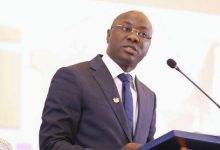The Public Accounts Committee (PAC) of Parliament is a body mandated to examine the audited accounts as presented to the House by the Auditor-General (A-G) of Ghana showing the appropriation of the sums granted by Parliament to meet the public expenditure of the government.
As part of its duties, the PAC gives all manner of recommendations after examining the audited accounts of public institutions.
Currently, the committee has recommended the prosecution of some management members of Senior High Schools (SHSs) in the Western Region, for procurement and store irregularities involving uncompetitive procurement.
Others are also to face Economic and Organised Crime Office (EOCO) for receiving unearned salaries.
The directive followed a public hearing of the A-G’s report on pre-university educational institutions for the financial year ending December 31, 2018.
Since the PAC has no power of prosecution, it has announced that it will forward the matter to the Attorney General for prosecution.
Some of the findings of PAC raise issues of grave concerns that must be seriously tackled if the country wants to see judicious use of public funds.
It must be established first and foremost that the report is on expenditure for 2018 but being examined over three years later. Why should it take that long for such a report to be examined?
Does it mean the A-G, on its part, delayed in putting together the report for examination by PAC?
The public needs some education here.
It is not in doubt that the A-G makes recommendations after auditing public accounts.
Which institutions or officials were to carry out those recommendations? Did they really take those actions assigned them? What were their challenges? Do these officials or institutions not deserve some sanctions for negligence or any other act of malfeasance?
The Ghanaian Times is posing these questions because it wonders why, for instance, it should take the PAC Chairman to direct that Peter Kwaw, a former worker of the Takoradi Technical Institute and also one Odame Antwi of Archbishop Porter Girls SHS should be made to refund unearned salaries?
Did the Sekondi-Takoradi Metropolitan and Western Regional Educational Directorates not receive reports on the matter before the PAC sitting in Takoradi yesterday?
If they did, what did they do? If they did not, whose duty was it to present them with such reports? Are some public officials sleeping on the job?
This question seems to be answered for the fact that the cause of payment of the unearned salaries was attributed to the failure of respective school managements to notify Controller and Accountant General Department to delete the names of the officers and not either informing the banks to stop payments of the salaries.
There is also a case of poor supervision and weak internal controls for which a school accounts officer took moneys he is now to refund into the school accounts at the current interest rate and disciplinary action taken against him.
This paper joins the PAC in calling for the EOCO investigations into the cases of unearned salaries so that all those complicit in the matter can be sanctioned accordingly.
It seems officials of public institutions do not care about reports of committees, which is why the malfeasance in the system has persisted over two decades of the establishment of the PAC for example.
A report on the findings of a study, ‘Beyond the PAC Report: What Next? Public Accounts Committee’s Recommendations to the Metropolitan, Municipal and District Assemblies in Ghana’, seems to support this view.
The December, 2014 report was prepared by Ghana Anti-Corruption Coalition (GACC) following its research Funded by Star-Ghana.
Among other issues, the GACC reports states that recommendations cited in the PAC’s report were not being implemented and those that were implemented had no reports on the status of implementation.
This must change because the PAC must be that one institution to help in ensuring transparency and judicious use of public funds.


